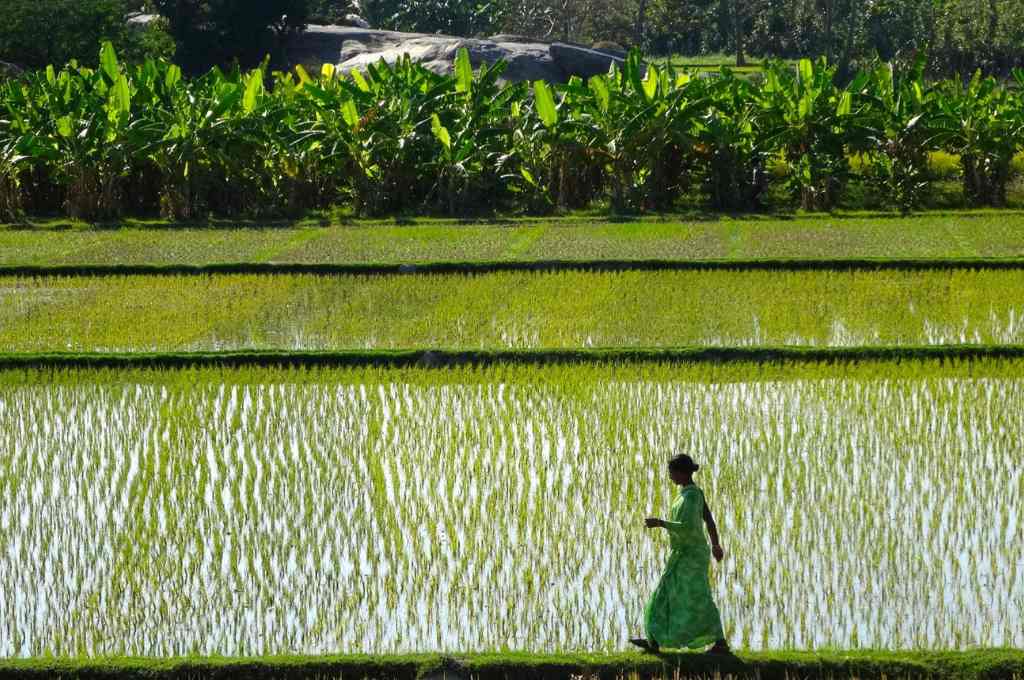For nonprofits to address the patriarchal systems that restrict women’s land rights, they must engage male stakeholders in meaningful dialogue.
Land ownership can play a critical role in women’s empowerment. Although there is a dearth of gender disaggregated data on women’s landlessness in India, one would like to believe that the enactment of more progressive laws such as the Hindu Succession (Amendment) Act, 2005, has resulted in a rise in the joint ownership of land in the country. But legislation is only the first step in forwarding the cause of women’s land rights, as women in India continue to face substantial sociocultural challenges in obtaining and exercising their rights to land and property.
Ravi Verma from International Centre for Research on Women (ICRW), a research organisation working on gender rights, explains that the patriarchy present at the heart of these systems is the reason behind the laws being ineffective. “Inheritance laws and initiatives have not been able to make a decisive dent in how patriarchy, supported by customary practices and inequitable gender norms, continues to maintain its widespread and often violent presence through control over a key empowering asset like land,” he adds.
Prakriti, a nonprofit dedicated to empowering rural women, has worked in more than 30 villages in Nagpur district and found male involvement to be a productive route to take. “Right at the beginning we realised that while it was important to speak to women and tell them about their own rights, it wouldn’t make much of a difference if we didn’t involve men in this dialogue,” says Suvarna Damle, executive director at Prakriti.
“Another reason to engage men in conversations on women’s land rights is to prevent violence,” says Ravi. He adds that women often experience aggressive and forceful evictions from lands, and sometimes there is a threat to their lives. Even when women do acquire land, they continue to face harassment by men. “I have heard many women who own land equating it with liability for these reasons,” highlights Ravi. Fear of alienation by family also prevents women from trying to claim any rights over land.
In order to move towards an effective solution, the men involved in these systems need to be sensitised about gender and patriarchy. Ravi underlines that without this dialogue, it will be difficult for men to understand and address the challenges women encounter while dealing with land allocation.
Male stakeholders in women’s land rights
Suvarna details the involvement of male stakeholders in this context. The most primary of these are government officials such as the sarpanch, gram sevak, or patwari. “We work with these office-holders at an implementation level. But if we speak to 50 village heads, only five will be open to addressing issues of women’s land allocation and inheritance,” says Suvarna. Ravi also notes the pervasive gender bias among these office-holders that, even if subtle, inevitably leaves women feeling marginalised and disadvantaged. “These institutions are deeply patriarchal and dominated by men,” he adds. Thus, the absence of engagement with office-holders in addressing these issues not only leads to inadequate implementation and enforcement of land rights laws but also severely hampers women’s ability to challenge discriminatory practices.
Male stakeholders may be vehemently opposed to women’s land rights due to the perceived personal loss they may incur.
The discrimination is especially heightened in the case of women belonging to marginalised groups or those who are widowed, separated, or deserted. Ravi stresses that “patriarchal institutions and their implementors may not have the necessary perspectives, tools, language, and sensitivities to engage with these women”. Therefore, the idea of substantive equality must be cultivated among the men (and women) in these institutions. This means that there must be a deliberate effort by the institutions implementing the laws to enhance marginalised women’s access to land.
In Nagpur, Prakriti actively engages with male stakeholders who are vehemently opposed to women’s land rights due to the perceived personal loss they may incur. “They are afraid that we will snatch their land and give it to women, and we have to explain to them that that’s not what we intend to do at all,” says Suvarna. Male family members constitute a significant part of this. Suvarna highlights that within families, especially those engaged in agrarian activities, there is also resistance to the division of land, which consequently results in opposition to women’s right to inherit. This is particularly bad for widows. The Food and Agriculture Organization of the United Nations highlights that many women risk losing their land rights in case of divorce or widowhood.


